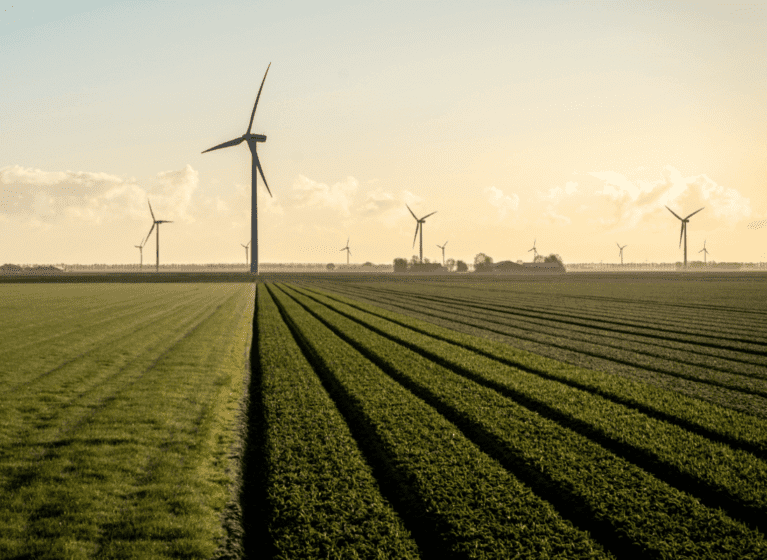The Global Cleantech Innovation Index 20141 reports that Israel, Finland and the US provide the best political, social and financial conditions to cultivate cleantech innovation and commercialisation over the next 10 years.
The Index was published by the Cleantech Group and WWF and ranks countries according to an average of ‘inputs’ and ‘outputs’ of innovation, with inputs corresponding to the drivers for the creation of innovation (both generally and clean-tech specific), and outputs corresponding to the country’s ability to commercialise that innovation.
Of 40 countries assessed, Israel came out on top, followed by Finland and the US. All three countries scored highly on general innovation inputs. However, it was Israel’s early-stage cleantech funding, patent filings and impressive number of high impact start-ups that pushed it to first place.
In Europe, the UK, Germany, Ireland, the Netherlands and the Nordic countries are the top performers. The UK and Canada placed sixth and seventh respectively, with both countries being held back by uncertain government policies and low cleantech company revenues.
Every, bar one, country in the top 10 could improve commercialisation rates. Denmark is the exception with the largest number of publicly traded cleantech companies relative to the size of its economy. Perhaps unsurprisingly, it is the emerging economies (Brazil, China and India) that perform well in this area due to the environmental and resource pressures they face to procure clean technologies. These countries are expected to rise up the ranks over the coming years with venture capital inflows to China expected to rival that of the US.
Russia and Greece make up the tail end of the Index, with Greece’s poor ranking due in part to the implementation of tough austerity measures including the imposition of a retroactive tax on solar generator revenues. Russia continues to focus on its vast oil and gas resources instead of exploiting available cleantech resources.
Australia ranked relatively well on innovation drivers, with a reasonable entrepreneurial culture, good early stage entrepreneurial activity and general attractiveness for renewables due to its geo-climatic features. However, its overall ranking was held back by its innovation outputs. Among other things, the report identifies uncertainty surrounding energy policy including the repeal of carbon pricing legislation and review of the renewable energy target, and the resultant weakness in investment in renewable energy, as contributing to Australia’s disappointing (and declining) result.
Australia’s result is in contrast to countries such as Finland and Denmark, with large public cleantech R&D budgets and supportive government policy, or the US, with strong private sector investment and attractive infrastructure for renewables.
Patenting ‘green’ innovation
The Index reports that globally environmental patent filings increased by nearly 100 percent between 2008 and 2011, with this being ‘a testament to the growth of sustainable innovation’. The top countries for patent filings include the US and Japan, with Korea coming out on top. The Index particularly notes a fast track program for green innovation implemented by the Korean Patent Office, allowing expedited examination for applications related to ‘green’ technologies and greatly reducing the time taken to receive an examination report. Similar programs are currently in place in Canada, the UK, Israel, China, Brazil and Australia.
Despite the advantages, uptake of the fast-track procedure for green patents has been relatively low. For example, in Australia, between 2009 and 2012, the Australian Patent Office received only 43 requests for expedited examination for green patent applications, mostly relating to carbon capture and storage. Low awareness of the availability of the fast-track programs is a possible explanation, but there are also some disadvantages to an expedited examination process such as greater upfront costs. Also, longer examination allows claims to be adjusted during examination to better match the end product (preventing circumvention by third parties) and to await examination in key jurisdictions. However, a more likely explanation, at least in Australia, is that uncertainty surrounding energy policy and weak investment means there is little impetus for innovators to seek to rush patents through to grant.
UN Climate Summit
With the 2014 United Nations Climate Change Conference coming up in December, the world’s attention will be focused on ongoing negotiations towards the adoption of a binding and universal climate agreement setting out emissions reduction targets. The Index’s top-ranking countries will be well-positioned to take advantage of the increased global appetite for clean technologies that is likely to follow. Similarly, those with poor rankings may be spurred on to improve local market conditions for cleantech start-ups in order to take advantage of the commercial opportunities on offer.


